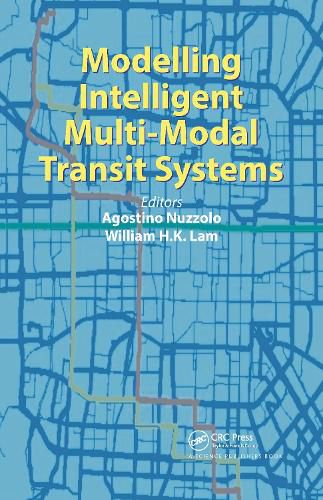Readings Newsletter
Become a Readings Member to make your shopping experience even easier.
Sign in or sign up for free!
You’re not far away from qualifying for FREE standard shipping within Australia
You’ve qualified for FREE standard shipping within Australia
The cart is loading…






The growing mobility needs of travellers have led to the development of increasingly complex and integrated multi-modal transit networks. Hence, transport agencies and transit operators are now more urgently required to assist in the challenging task of effectively and efficiently planning, managing, and governing transit networks. A pre-condition for the development of an effective intelligent multi-modal transit system is the integration of information and communication technology (ICT) tools that will support the needs of transit operators and travellers. To achieve this, reliable real-time simulation and short-term forecasting of passenger demand and service network conditions are required to provide both real-time traveller information and successfully synchronise transit service planning and operations control.
Modelling Intelligent Multi-Modal Transit Systems introduces the current trends in this newly emerging area. Recent developments in information technology and telematics have enabled a large amount of data to become available, thus further attracting transport researchers to set up new models outside the context of the traditional data-driven approach. The alternative demand-supply interaction or network assignment modelling approach has improved greatly in recent years and has a crucial role to play in this new context.
$9.00 standard shipping within Australia
FREE standard shipping within Australia for orders over $100.00
Express & International shipping calculated at checkout
The growing mobility needs of travellers have led to the development of increasingly complex and integrated multi-modal transit networks. Hence, transport agencies and transit operators are now more urgently required to assist in the challenging task of effectively and efficiently planning, managing, and governing transit networks. A pre-condition for the development of an effective intelligent multi-modal transit system is the integration of information and communication technology (ICT) tools that will support the needs of transit operators and travellers. To achieve this, reliable real-time simulation and short-term forecasting of passenger demand and service network conditions are required to provide both real-time traveller information and successfully synchronise transit service planning and operations control.
Modelling Intelligent Multi-Modal Transit Systems introduces the current trends in this newly emerging area. Recent developments in information technology and telematics have enabled a large amount of data to become available, thus further attracting transport researchers to set up new models outside the context of the traditional data-driven approach. The alternative demand-supply interaction or network assignment modelling approach has improved greatly in recent years and has a crucial role to play in this new context.